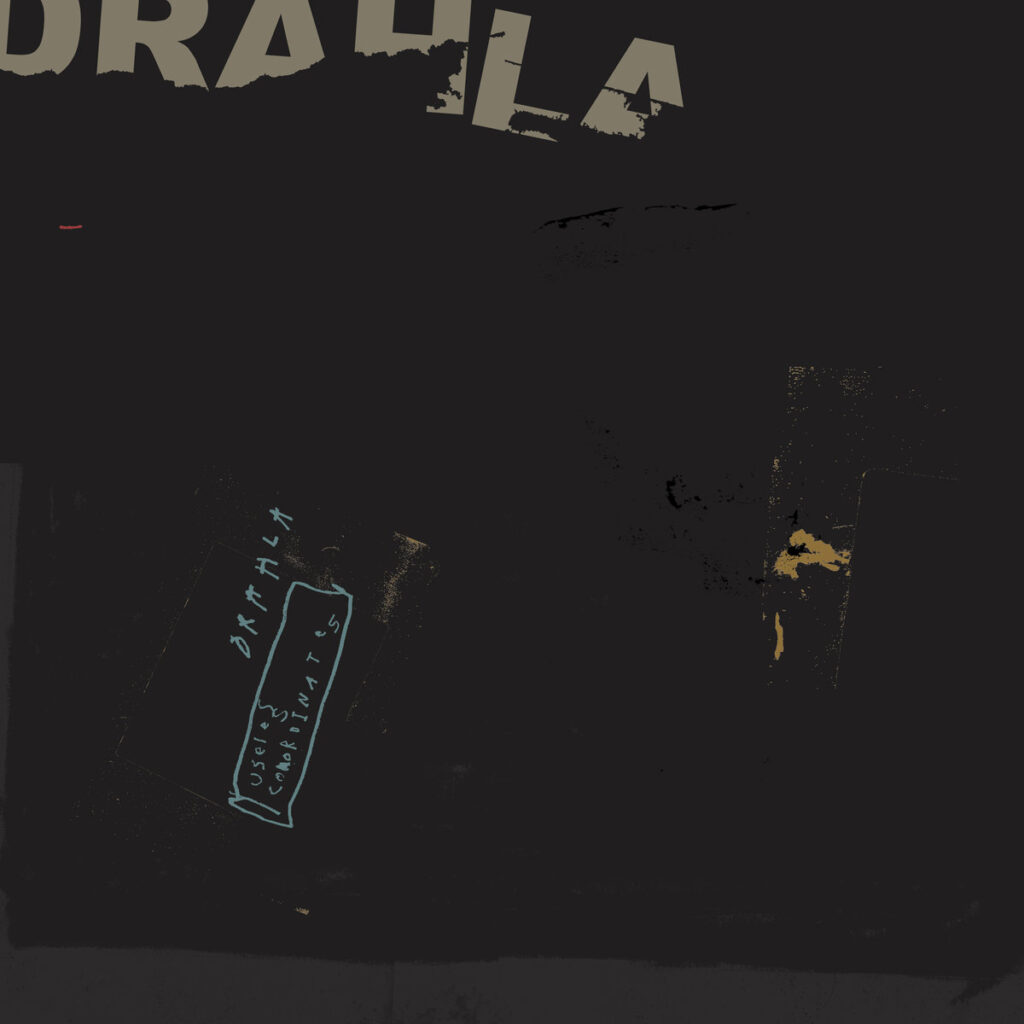
As you hear the first few bars of the opening track “Gilded Cloud” you’ll hear the bass oozing with venom, the guitar spit with vitriol and the drums gain on you with utmost ferocity. Drahla’s sound is an urban threat, defiant towards conformity and built in the uncompromising heritage of post-punk. There’s a dystopian atmosphere that surfaces with every listen as singer Luciel Brown delivers each line in her in sing-speak deadpan rhythm around a concrete wall of indie rock.
Along with Rob Riggs and Michael Ainsley, the Leeds trio dishes out straight-to-the-gut punching melodies with blistering bass lines, eerie sonic elements and song structures that will keep listeners on their toes.
“Pyramid Estate” is a highlight that everyone seems to point out, and for good reason. The staccato movement of the main instruments highly contrast the psychotic saxophone lines, and the mixture works to great effect. The lyrics speak of a sly juxtaposition of Ancient Egypt and the modern western world, where self adoration is a strongly held value.
“Stimulus for Living” is filled with cranky guitar riffs and dreary harmonies. Brown’s impassive delivery lays out the droning repetition of patterns and norms in our lives and questions our adherence to these ideologies. Undoubtedly the main idea behind the album title, “Useless Coordinates”.
The saxophone emerges again with “React/Revolt” and I must say, I have never heard it being used in this fashion before, and chances are, neither have you. A trippy jazz solo supersedes the brooding drum and bass line, creating a serpentine crawling effect. Followed by a collage of coarsely uttered lines that is most represented by the lyric “Acid on glistening teeth”.
“Twelve Divisions of the Day” is an exercise in efficiency, seemingly able to catalog the frustrations of modern day life with references to narcissism, desolate religious faith and the monotony of it all. Brown captures it succinctly in the line “Feeling slightly indifferent to unnatural human existence / And the day consists of copied routine / Social logistics, speed, same creed”.
The ending song is a wry examination of gender roles. “Invisible Sex” enumerates with computer-like precision the method by which we are profiled into binary gender, making a mockery out of how we are stripped of individuality, and how it shapes the roles and opportunities we are eligible for. The blaring guitar intro goes in and out of key, a striking revolt to the absurdity of its subject matter.
Drahla’s latest album has a lot to unpack despite its half an hour runtime and sub-3 minute tracks. It’s thought-provoking lines encase you in a granite room that leaks with acid, leading you to question your existence and the foundation that it is built around. And while other contemporaries of the genre have done the same, the band’s cold-blooded matter-of-fact delivery makes you fill in the lines and take a closer look at the useless coordinates.
